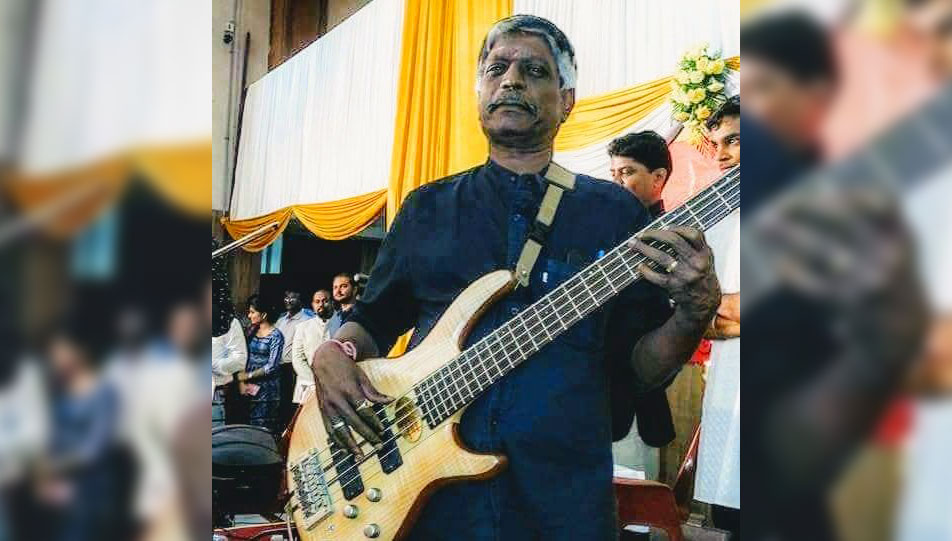The Telugu Film Producers Council and the Eastern India Motion Picture Association on Tuesday wrote to their respective state governments- Telangana, Andhra Pradesh and West Bengal- seeking to raise the occupancy of seats in cinema halls from 50% to 100%.
This was following Tamil Nadu state government’s order on Monday allowing 100% capacity in theatres. It reportedly came at the request of Tamil actors and megastars, Vijay and Silambarasan, ahead of their respective releases, Master and Eeswaran.
Theatre owners, exhibitors and producers haven’t received any response from their respective state governments yet.

Photo Credit- Silverscreen Media Library
master-third-lookCinemas across India were shut since mid-March 2020 and were allowed to reopen with a 50% capacity and other regulations in place, from October 15, 2020. Cinemas suffered the blow in the absence of big releases, which have either been pushed to 2021, or opted for a digital release.
Cinema halls are packed spaces, mostly air conditioned, which are considered to be potential breeding grounds of Covid-19. Seating capacity was restricted due to the rising number of cases across the country.
Citing the decrease in daily number of Covid-19 cases, Arijit Ghosh, owner of Priya Cinema in Kolkata, told Silverscreen India, “Why would cases increase only in cinema halls? Firstly, the space in cinemas have been cut down. So, that huge crowd in single screens in the earlier days is not there anymore. Secondly, are you trying to say that people crowd cinema halls for longer than they crowd restaurants? We are not crowding anywhere close. And the auditorium is vast. We suck out used air and put in fresh air through air conditioning. Where is the danger of Covid?”
Owners of cinema halls have seen counting losses since March, forcing them to either take loans or shut down business.
Badam Venkat Krishna, managing director of Sree Mayuri 70MM cinema hall in Hyderabad, has shut down his theatre owing to mounting costs along with the absence of good content.
Krishna has decided against reopening his theatre even if the state government allows full seating capacity, as there is increasing competition from streaming platforms.
“While before Covid, the costs included fire equipments, and security personnel, the post-Covid era saw added costs of sanitisation. Moreover, there are threats from additional competition coming from OTT platforms, television and the digital era,” he said.
“If the films don’t release, the theatres will have to close down again,” said Ghosh of Priya Cinema, adding that policy makers do not consider the impact of their decision on the indirect employees of cinema hall owners- popcorn, snacks and soft drink sellers.
“It is also the staff at the cinemas, we are unable to pay them in full,” Ghosh said.

While the reduction in the seating capacity has been a pressing issue, exhibitors’ associations were initially clueless about the state’s powers. Tamil Nadu’s stand paved the way for them.
Satadeep Saha, film distributor and owner of Ajanta cinema in Kolkata, said: “Actually, the Central government had put out the earlier gazette, which made it unclear whether the state had the power or the Centre. Once Tamil Nadu government issued the order, then other states realised that we have the orders and we can do it. We don’t need the Centre’s permission.”
Full seating capacity will catapult the industry back to action, said Saha.
“Obviously, the next big release is Master. After that there are some top Bollywood releases, like Sooryavanshi, 83, Radhe, which are ready for theatrical release,” said Saha, who is the distributor of Master in West Bengal.
However, Ghosh, and Gopal Reddy of Ranga 70MM Cinema, believe that allowing full seating capacity will encourage producers to release their ready stock of unreleased films. They think this is the only relief measure in the current scenario.
Recommended
“Unfortunately, the film industry, especially the exhibition industry, did not get any form of relief from either the centre or the state, at least in West Bengal. Even the stars did not stand up to speak. And a lot of them are MPs and MLAs today,” Ghosh said.
Bengali actors Mimi Chakraborty, Nusrat Jahan, and Dev Adhikari are associated with the ruling Trinamool Congress in West Bengal and are Members of Parliament.
Reddy wants both seating capacity and parking charges to be considered.
Meanwhile, after Tamil Nadu issued its order on Monday, the Union Ministry of Home Affairs on Wednesday asked the state to revoke its order, stating that it “amounts to dilution of MHA Order dated December 28, 2020 issued under the DM Act, 2005″.



